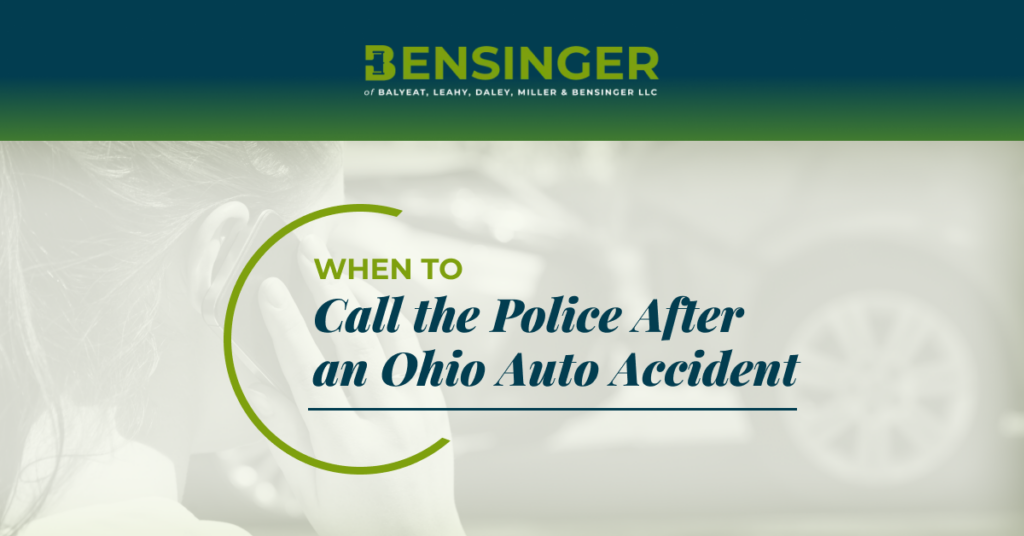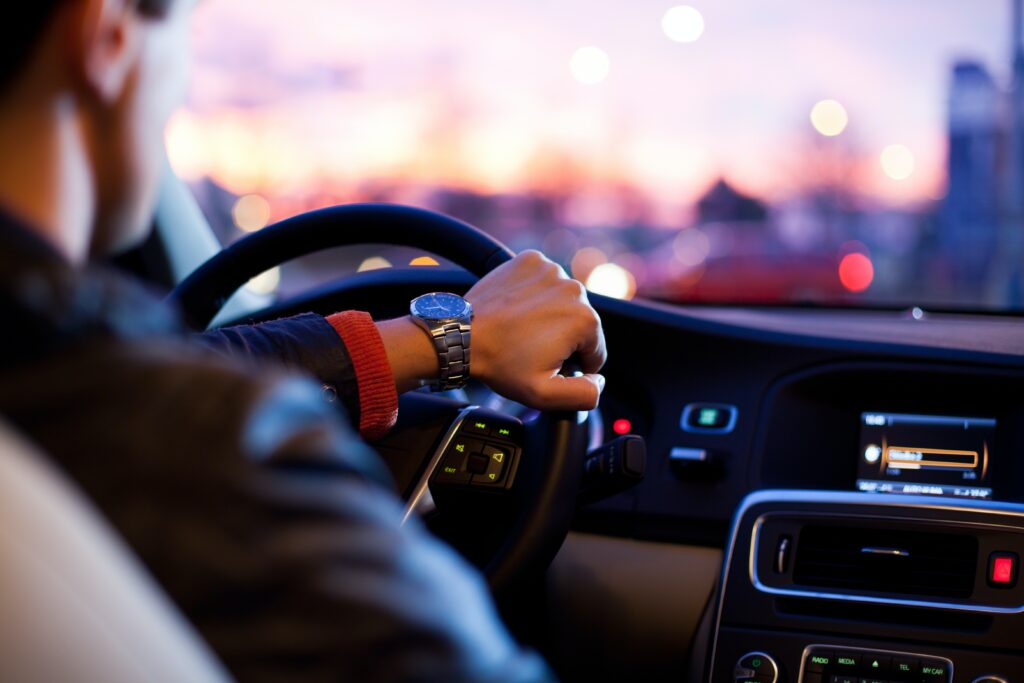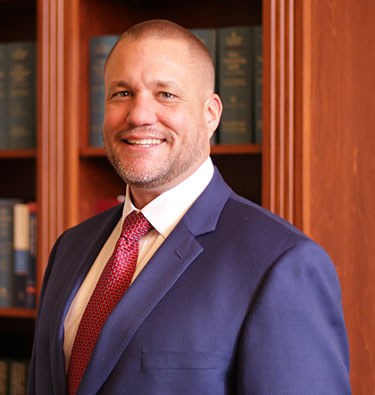
Feeling overwhelmed and unsure of what to do after an accident is common.
Do you have to call the police?
Depending on the severity of the accident, you might be required to call the police in Ohio. For example, if someone sustained injuries, you must report the accident.
Many drivers might hesitate to involve law enforcement, especially in seemingly minor collisions.
Though reporting an accident is sometimes a legal obligation, it’s also an important step in pursuing compensation for your damages.
The police report serves as an official record of the accident, providing essential details that can be pivotal in personal injury claims.
At Besinger Legal Services, we understand the nuances of Ohio’s car accident laws. If you’re seeking guidance on handling the aftermath of a collision, attorney Aaron Bensinger is here to help.
Remember, even minor accidents can have significant implications, and it’s always better to be informed and prepared.
To learn more, please call our office at (419) 455-1410 to set up a consultation.
Ohio Accident Reporting Laws
In Ohio, the law stipulates specific circumstances under which you are legally required to report an auto accident.
This requirement is not just a procedural formality but a legal obligation that could have significant implications if not adhered to. Failure to report an accident could lead to a misdemeanor charge.
You must call the police and file a report in Ohio if the accident results in:
- An injury necessitating medical attention,
- A fatality, or
- Property damage exceeding $1,000.
Additionally, certain cities and counties may have their own specific reporting requirements. If you have questions about the Ohio reporting laws, please get in touch with attorney Aaron Bensinger.
Do You Have to Call Police After a Minor Car Accident?
You are not legally required to call the police for minor car accidents with no injuries and damage below $1,000. However, accurately assessing the extent of damage can be challenging at the scene, and unapparent injuries can emerge later.
Sometimes, people do not immediately feel soft tissue injuries, or they misjudge how much damage there is to a vehicle. Therefore, even in minor accidents, it’s wise to consider involving the police.
What to Do Following an Accident in Ohio?
Following an accident, keeping a clear head and taking the proper steps are important. What you do immediately following a collision can impact your future claim.
Here’s a list of things to do if you’re involved in an Ohio auto accident:
- Ensure everyone is safe. First, check for injuries. If anyone is hurt, call 911 immediately. If possible, move your vehicle from the road to somewhere safe that won’t lead to another accident.
- Call the police. If you think the accident meets Ohio’s reporting criteria, call the police. If there are serious injuries, be sure to let the 911 operator know that emergency medical personnel are required.
- Document the scene. Take photos of the vehicles, road conditions, traffic signs, and injuries. These images can be crucial evidence for insurance claims or legal cases. However, do not risk further injury or put yourself in an unsafe situation to get these photos.
- Exchange information with all involved parties. Whether you call the police or not, swap contact and insurance details with all involved parties. Get their name, address, phone number, insurance company, policy number, driver’s license, and license plate number.
- Get witness contact information. If anyone stopped as a witness, get their contact information. Witness statements can be invaluable in determining fault and supporting your account of the accident.
- Seek timely medical attention. Even if you feel fine at the scene, some injuries, like whiplash, may not be immediately noticeable. See a doctor as soon as possible to verify you don’t have any severe injuries.
- Report the accident to your insurance company. Inform your insurer about the accident and provide them with all the necessary details.
- Consult an Ohio accident lawyer. An attorney at Bensinger Legal Services can help you understand your rights and options.
If the police do respond to the accident scene, be cautious of what you say when speaking to the officer. You don’t want to inadvertently say something that could be misconstrued as an admission of fault.
Contact our Ohio accident lawyers for a free consultation
Should You Always Call the Police After a Car Accident?

Even when you’re not legally obligated to contact the police, it’s always better to consider calling. There are some benefits to making that call.
The report generated by the responding officer provides an objective third-party account of the accident, which can be crucial in resolving outstanding liability disputes. Although the officer was not present for the accident, they will conduct an investigation and usually include thoughts on who is at fault.
Police documentation can help confirm accident-related damage to all vehicles. You don’t want to be blindsided by the other party weeks later who suddenly claims this was a severe accident. Unfortunately, fraudulent claims are always a concern. Between staged accidents and people who falsify damages after the fact, having a police report means you have proof of what really happened.
It’s easy to overlook details after an accident. Stress and emotions are running high, so some things may be forgotten. Having an officer respond to the scene means you have a thorough record of the accident.
While calling the police for every minor scrape may not be necessary, it’s generally advisable to err on the side of caution and involve law enforcement. It’s better to have called the police when you didn’t need to versus not reporting the accident when you should have.
What Happens if You Don’t Call the Police After an Accident?
If you don’t call the police after an accident in Ohio, there are potential consequences, especially if the accident falls within the reporting threshold.
Here are some key things to remember if you don’t report the accident:
- Lack of official record. Without a police report, you have no official record. That can make it more challenging to prove the circumstances of the collision or the extent of your damages.
- Insurance claim complications. Insurance companies often rely on police reports to assess claims. If you present any claims to your insurance company, your policy terms might require you to have a police report.
- Legal repercussions. Under Ohio law, failing to report an accident when required is a misdemeanor. You could face legal penalties, including fines or criminal charges.
- Disputes over fault. Without a police report, determining fault becomes a he-said-she-said scenario. If the other party claims injuries or damages not present at the scene, you will have a more challenging time proving your version of the accident.
While calling the police after a minor accident is not always legally required, doing so can provide crucial protection and support in your quest for compensation.
Contact Bensinger Legal Services for a Free Consultation
If you have questions about whether you have to call the police after an accident in Ohio, please speak with attorney Aaron Bensinger.
At Bensinger Legal Services, we have years of experience dealing with Ohio auto accidents. Let us put our experience to work for you and help answer any questions you have.
Contact our office online or call (419) 455-1410 today to schedule a free consultation to learn more.



